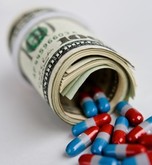Generics/Research
Japan’s drug shortage crisis: challenges and policy solutions
Drug shortages are worsening worldwide [1, 2], and Japan is facing significant challenges due to a combination of factors. One major issue arises from the shift from brand-name to generic drugs, coupled with scandals involving poor manufacturing and development practices. These shortages affect access to essential treatments, prompting calls for action from pharmaceutical companies and the government.
Saudi FDA drug approvals and GMP inspections: trend analysis
A GaBIJ Review Article entitled ‘Trends in Saudi FDA drug approvals and GMP inspections: an observational study’, was published by a group of authors, Alhomaidan et al., from Saudi Food and Drug Authority (SFDA) in October 2023 [1].
Generic medications in the Lebanese community: understanding and public perception
A study conducted by Hatem G and Itani R et al. found that factors such as regulatory standards and quality assurance can influence people’s perception of generic drugs. This research involved 385 patients recruited from six public healthcare centres in Lebanon. Like in many countries, the regulatory authority in Lebanon ensures that generic drugs meet the same standards as brand-name drugs.
Community pharmacists’ understanding of generic and biosimilar drugs: Lebanon case study
A study conducted by Awada S et al. stated that several factors can contribute to a lack of knowledge among community pharmacists regarding the differences between biosimilar and generic drugs. According to the authors, understanding the scientific and regulatory aspects of biosimilars can be challenging, primarily due to the limited clinical experience in dispensing biosimilars, which leads to misconceptions about their characteristics [1].
Reshaping landscape of Japanese generics market – uncertain future of universal health insurance
According to a study conducted by Kosaka M et al., Japan established a national health insurance scheme in 1961. This scheme ensured that the entire Japanese population has equal access to medical care by paying only 10%–30% of the medical cost from their own pocket [1]. Despite the advancement of medical technology and a fast-ageing society, Japan’s healthcare costs have continued to rise. However, the Japanese government has failed to offer a fundamental solution and has instead implemented interim measures, with a notable example being the encouragement of generic drug utilization [2]. Similar issues and challenges have been observed in wealthy Organisation for Economic Co-operation and Development (OECD) Asian health markets [3].
Impact of e-bidding procurement on generic omeprazole injection prices in Thailand
To address Thailand's increasing drug costs, the government implemented e-bidding for drug procurement. In a study by Pentrakan et al., e-bidding reduced omeprazole injection prices by 17.35% per vial and enhanced the procurement process. Nonetheless, maintaining a balance between innovation and involving local suppliers is vital for success [1].
Trajectories of prices in generic drug markets
In a study by Trujillo AJ et al., the authors adopt a group-based trajectory modelling approach to analyse the price trends of generic drugs. The analysis is conducted using price data collected quarterly over the past decade from the IBM MarketScan claims database. The study focus is to understand the trajectory patterns of these drugs and identify factors that may have influenced their pricing over time [1].
Evaluation of pharmaceutical equivalency of manufactured generic drugs in UAE
Generic medicines are pharmaceutical products manufactured to be equivalent to the brand or innovator drug products. They represent the majority of worldwide prescribed medicines; therefore, their quality is critical to ensure equivalent therapeutic outcomes
New insights into the amount of R & D for new uses of generic drugs
Generic drugs are considered indispensable to healthcare systems because they are substantially cheaper than original versions of the drugs. These drugs have become common place, within healthcare delivery, because of the anticipated financial benefits [1].
Pricing and reimbursement of medicines in Canada
Canada is a wealthy country with gross domestic product (GDP) per capita of US$43,258 in 2020. It ranks 16th in the United Nations’ Human Development Index and is one of the most multicultural countries in the world. Canada’s population of more than 38 million includes a significant indigenous population. Its huge land mass means it is very sparsely populated outside urban areas. Authors from Canada and Brazil discuss the pharmaceutical pricing and reimbursement policies in Canada [1].











